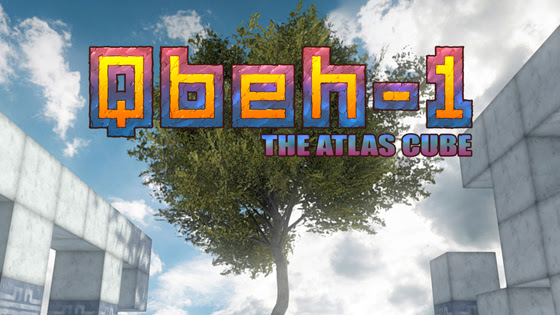 For a first-person puzzle platformer with absolutely no narrative, “Qbeh-1: The Atlas Cube†is immensely compelling. With a wide variety of skill inducing stages and somewhat diverse assortment of puzzle-cubes (for lack of better term), this is an experience that is extremely worthwhile, even with a few frustrating components tugging at the enjoyment.
For a first-person puzzle platformer with absolutely no narrative, “Qbeh-1: The Atlas Cube†is immensely compelling. With a wide variety of skill inducing stages and somewhat diverse assortment of puzzle-cubes (for lack of better term), this is an experience that is extremely worthwhile, even with a few frustrating components tugging at the enjoyment.
Serving as a prequel to the successful student project “Qbeh,†“The Atlas Cube†takes players on a journey through multiple worlds, where they must use magical cubes to navigate through the stages to reach a portal at the end that will send them to the next level.
When we got our first look at “The Atlas Cube†we weren’t exactly excited for it. There was nothing about it that really pulled us in. But after we jumped into the world and witnessed first-hand the beautiful, charming atmosphere that encompasses the first few levels and listened to the wonderful tunes of the game’s soundtrack, we were quickly hooked. It may have a dull outer shell, but that’s because it’s aimed at attracting players through pure gameplay — one of those “you can’t knock it until you try it†cases.
From the very first level, “The Atlas Cube†makes it apparent that it gives no effort to hold gamers’ hands, leaving everything to be figured out through trial-and-error. Any explanation as to what the player is doing or why is all but omitted, yet for some strange reason there’s something about the game, something about its atmosphere that makes you feel as if there is a story hidden within layers of a random (but fun) experience. Sadly, there’s not.
Unfortunately, for a game solely focused on gameplay, “The Atlas Cube’s†puzzles can feel a bit repetitive, which, without any story giving you a reason to keep going, really chips away at its appeal. It’s not that the puzzles are the same, but since not every circumstance requires a singular solution, we ultimately found ourselves solving multiple situations with a similar strategy.
Every once and a while the game throws a new type of cube at you, including ones that can activate moving platforms or lower the gravity, hoping to spruce things up, and at first that’s precisely what it does. But once a few worlds in, we sort of just lost interest…
… and then we got kind of bored.
Another problem “The Atlas Cube†faces is its awful checkpoint placement. Checkpoints are scarce, and we get that the game is meant to be challenging, but there were times where we experienced an unlikely death — such as a door slamming on us or we accidentally overstepped a platform — in which case we were punished by being forced to start the entire level over again.
Overall, “The Atlas Cube†is a fun, for the most part challenging puzzler. It has its flaws but they can be easily overlooked. Aside from a few sighs from the lousy checkpoint placement, tackling each of the game’s 30-plus stages should keep players entertained and their minds focused for quite some time.

Leave a Reply